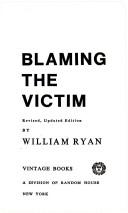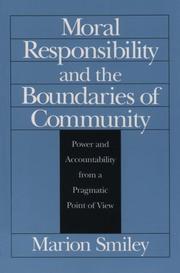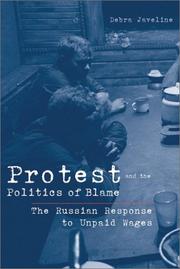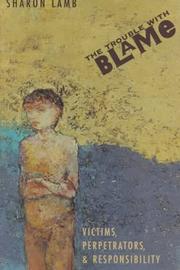| Listing 1 - 10 of 58 | << page >> |
Sort by
|
Book
ISBN: 9780241574256 0241574250 Year: 2022 Publisher: London: Allen Lane,
Abstract | Keywords | Export | Availability | Bookmark
 Loading...
Loading...Choose an application
- Reference Manager
- EndNote
- RefWorks (Direct export to RefWorks)
‘A clear-eyed warning about the increasingly destructive influence of America's ‘shame industrial complex’ in the age of social media and hyperpartisan politics-from the New York Times bestselling author of Weapons of Math Destruction. Shame is a powerful and sometimes useful tool: When we publicly shame corrupt politicians, abusive celebrities, or predatory corporations, we reinforce values of fairness and justice. But as Cathy O'Neil argues in this revelatory book, shaming has taken a new and dangerous turn. It is increasingly being weaponized-used as a way to shift responsibility for social problems from institutions to individuals. Shaming children for not being able to afford school lunches or adults for not being able to find work lets us off the hook as a society. After all, why pay higher taxes to fund programs for people who are fundamentally unworthy? O'Neil explores the machinery behind all this shame, showing how governments, corporations, and the healthcare system capitalize on it. There are damning stories of rehab clinics, reentry programs, drug and diet companies, and social media platforms-all of which profit from ‘punching down’ on the vulnerable. Woven throughout The Shame Machine is the story of O'Neil's own struggle with body image and her recent decision to undergo weight-loss surgery, shaking off decades of shame. With clarity and nuance, O'Neil dissects the relationship between shame and power. Whom does the system serve? Is it counter-productive to call out racists, misogynists, and vaccine skeptics? If so, when should someone be ‘canceled’? How do current incentive structures perpetuate the shaming cycle? And, most important, how can we all fight back?’--
Shame --- Blame --- Social problems
Book
ISBN: 9781137507211 Year: 2019 Publisher: London : Palgrave Macmillan,
Abstract | Keywords | Export | Availability | Bookmark
 Loading...
Loading...Choose an application
- Reference Manager
- EndNote
- RefWorks (Direct export to RefWorks)
This book examines the language of public inquiries to reveal how blame is assigned, avoided, negotiated and discussed in this quasi-legal setting. In doing so, the author adds a much-needed linguistic perspective to the study of blame - previously the reserve of moral philosophers, sociologists and psychologists - at a time when public inquiries are being convened with increasing frequency. While the stated purpose of a public inquiry is rarely to apportion blame, this work reveals how blame is nevertheless woven into the fabric of the activity and how it is constructed by the language of the participants. Its chapters systematically analyse the establishment of inquiries, their questioning patterns, how blame can be avoided by witnesses, how blame is assigned or not by an inquiry's panel and how such blame may result in public apologies. The author concludes with an engaging discussion on the value of public inquiries in civic life and suggestions for changes to the processes of public inquiries. This book will appeal to readers with a general interest in public and political language; in addition to scholars across the disciplines of communication, media studies, politics, sociology, social policy, philosophy, psychology, linguistics, rhetoric, public relations and public affairs.

ISBN: 0394717627 Year: 1976 Publisher: New York (N.Y.) : Vintage books,
Abstract | Keywords | Export | Availability | Bookmark
 Loading...
Loading...Choose an application
- Reference Manager
- EndNote
- RefWorks (Direct export to RefWorks)
Blame --- Social aspects --- United States --- Social conditions
Book
ISBN: 0190050071 0190050055 Year: 2020 Publisher: New York, NY : Oxford University Press,
Abstract | Keywords | Export | Availability | Bookmark
 Loading...
Loading...Choose an application
- Reference Manager
- EndNote
- RefWorks (Direct export to RefWorks)
Heroes, villains, victims, and minions have been the building blocks of moral and political reputations throughout human history. In 'Public Characters', the authors look at visual images, music, and words to show the techniques by which these characters get constructed. They also trace the impact of these public characters in politics, including the 2016 triumph of Donald J. Trump through his ability to cast opponents as villains and minions.
Reputation --- Blame --- Character --- Political sociology. --- Political aspects.

ISBN: 0226763269 9780226763262 0226763277 9780226763279 9780226763255 0226763250 Year: 1992 Publisher: Chicago University of Chicago Press
Abstract | Keywords | Export | Availability | Bookmark
 Loading...
Loading...Choose an application
- Reference Manager
- EndNote
- RefWorks (Direct export to RefWorks)
Blame. --- Blâme. --- Pragmatica. --- Pragmatism. --- Pragmatisme. --- Responsabilidade profissional. --- Responsabilité. --- Responsibility. --- Sozialethik. --- Verantwoordelijkheid. --- Verantwortlichkeit. --- Verantwortung. --- Willensfreiheit.
Book
ISBN: 9780394722269 0394722264 Year: 1976 Publisher: New York: Random House,
Abstract | Keywords | Export | Availability | Bookmark
 Loading...
Loading...Choose an application
- Reference Manager
- EndNote
- RefWorks (Direct export to RefWorks)
Blame --- African Americans --- African Americans --- Poor --- United States
Book
ISBN: 9780715638743 0715638742 9781590207161 1590207165 Year: 2011 Publisher: London ; New York : Duckworth Overlook,
Abstract | Keywords | Export | Availability | Bookmark
 Loading...
Loading...Choose an application
- Reference Manager
- EndNote
- RefWorks (Direct export to RefWorks)
Traces the history of blaming others, exposes the anger and irrationality of it, and reveals man's capacity to cast blame.
Attribution (Social psychology) --- Blame --- Faultfinding --- Scapegoat --- History. --- History. --- History. --- History.

ISBN: 1282445324 9786612445323 0472024779 9780472024773 9781282445321 6612445327 0472113062 9780472113064 Year: 2003 Publisher: Ann Arbor
Abstract | Keywords | Export | Availability | Bookmark
 Loading...
Loading...Choose an application
- Reference Manager
- EndNote
- RefWorks (Direct export to RefWorks)
Explains the absence of wide-scale protest over unpaid wages in Russia.
Wages --- Blame --- Social psychology --- Social surveys --- Political aspects
Book
ISBN: 9781780326375 1780326378 9781780326382 1780326386 9781780326399 1780326394 Year: 2019 Publisher: London Zed Books
Abstract | Keywords | Export | Availability | Bookmark
 Loading...
Loading...Choose an application
- Reference Manager
- EndNote
- RefWorks (Direct export to RefWorks)
An intriguing investigation, shattering the hackneyed notion that knowledge is power.
Knowledge, Sociology of --- Ignorance (Theory of knowledge) --- Blame

ISBN: 0674910109 Year: 1996 Publisher: Cambridge, MA London Harvard University Press
Abstract | Keywords | Export | Availability | Bookmark
 Loading...
Loading...Choose an application
- Reference Manager
- EndNote
- RefWorks (Direct export to RefWorks)
Attributie (Sociale psychologie) --- Attribution (Psychologie sociale) --- Attribution (Social psychology) --- Blame. --- Victims --- Psychology. --- Attribution (Social psychology). --- Blame --- Criticism, Personal --- Cognition --- Gestalt psychology --- Social perception --- Social psychology --- Psychology --- Moral and ethical aspects --- Blame - Moral and ethical aspects. --- Victims - Psychology.
| Listing 1 - 10 of 58 | << page >> |
Sort by
|

 Search
Search Feedback
Feedback About UniCat
About UniCat  Help
Help News
News